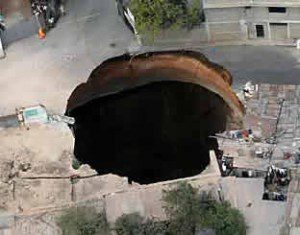
A drumbeat of bad budget news culminated Thursday in what state forecasters said was the latest estimate of the size of the budget shortfall lawmakers will confront when the legislative session begins in January: Just shy of $2 billion.
The $1.96 billion estimate includes recent downgrades to the state’s projected tax income and escalating costs for health care and education. But key Senate Republicans were already signaling that they thought even that number might underestimate what lawmakers will face.
The numbers presented by Amy Baker, executive director of the Legislature’s Office of Economic and Demographic Research, assume the state will patch up a $554.8 million hole opened in the education budget by the expiration of some federal educational funds. And it assumes that the eurozone debt crisis will be defused and the nation will avoid a second recession.
“If there is any other shock, then this becomes much more suspect,” Baker said.
But Senate Budget Chairman J.D. Alexander, R-Lake Wales, signaled he already had concerns about the numbers, especially with the early start of the legislative session to deal with redistricting matters.
“I think we need to be careful and realistic with where we are. … We could between now and when we finalize the budget have more challenging numbers — or it could be better,” Alexander said.
Alexander wasn’t alone in taking a dim view of the numbers. Earlier Thursday, Senate President Mike Haridopolos, R-Merritt Island, said business confidence has dropped, which he attributed to this summer’s federal budget battles in Congress and uncertainty about the federal health overhaul.
“I’m going to be pessimistic, unfortunately,” Haridopolos said.
Despite the unusual length of time between when lawmakers will begin crafting the budget and the July 1 opening of the fiscal year, Alexander said he wasn’t ready yet to propose moving the budget process back to give lawmakers more time.
“I just am raising the issue publicly that I’m nervous about building a budget on estimates 60 days ahead when we’re in more turbulent times,” he said.
And Alexander said the new estimates showed that the state might need to set aside more reserves than the $1 billion assumed by revenue forecasters to arrive at the shortfall figure.
“If we have to pass a budget out March 1, I think it might even need to be more than $1 billion, to make sure that we can function well given the distance between the estimate and the actual time frame,” he said of the reserve.
Meanwhile, Alexander’s committee began weighing possible changes to the state health-insurance plan in light of a report that suggests moving toward what a “consumerism” approach by placing more responsibility on employees to make health-care decisions and pick up a greater share of the costs
Sen. Don Gaetz, R-Niceville, said the state’s health insurance plan should also charge higher premiums for smokers and others who make unhealthy decisions.
“I hope that you would be aggressive in rewarding healthy choices, and would be aggressive on penalizing unhealthy choices that seek to shift costs onto fellow workers,” Gaetz said.
But Alexander said the committee was far from a final decision on what action, if any, it might propose on the health-care plan after lawmakers approved the broad contours of an overhaul last year.
“We’re just starting the discussion on where we are,” he said. “It was in the mix last year; it’s still in the mix.”
By Brandon Larrabee
News Service reporter Jim Saunders contributed to this report.


